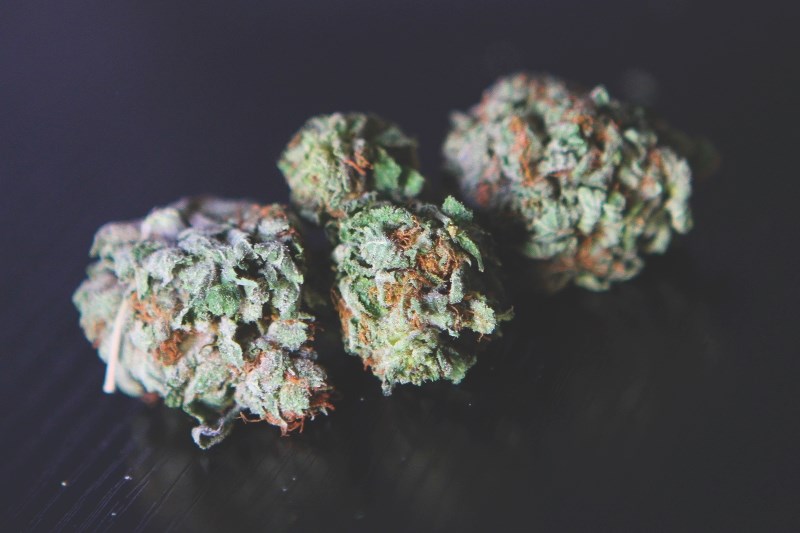CANMORE – Canmore may be on track to become one of the least prohibitive municipalities when it comes to public consumption of recreational cannabis once it is officially legalized later this year.
Elected officials were briefed Tuesday (Aug. 14) on legislative options available to them when it comes to smoking and vaping of both cannabis and tobacco in the community.
Feedback from council saw elected officials express concern around increasing restrictions beyond what is currently included in provincial legislation to create a full-blown ban on the smoking and vaping of legal recreational cannabis anywhere in public.
Councillor Joanna McCallum said she has concerns over how increased restrictions through a municipal bylaw would affect renters, who could be prohibited from smoking or vaping by their landlords.
“Only some people would be able to consume at home,” McCallum pointed out. “Most people who rent out their home do not allow people to consume tobacco.
“The law could potentially treat renters like second class citizens because they rent and do not own.”
Coun. Esmé Comfort said while she is still concerned about the health effects of smoking cannabis, she would rather take a wait and see approach before increasing restrictions.
“Because of the diversity of approaches all the provinces are taking and all the municipalities are taking, I would sooner see where it ends up and say ‘OK, here is what makes sense for us,’ ” Comfort said.
Manager of protective services Greg Burt presented three options – from the least to the most restrictive – when it comes to where the public may partake in legal recreational cannabis.
“We need to give some thought about how we are going to proceed,” Burt said. “As of Oct. 17, cannabis and tobacco will be prohibited under the Tobacco and Smoking Reduction Act in public places and the definition of public places is important to understand.
“It does not mean the entire community.”
The act currently applies to tobacco and, once cannabis is legal, it would apply to its consumption as well. But in the act a public place is defined specifically as buildings or structures the public has access to. It includes group living facilities, offices, outdoor bus shelters, licenced premises and restaurants and patios.
It would also be prohibited in workplaces and the Town’s own bylaws prohibit smoking in hotel rooms. Smoking would also be prohibited in vehicles where a minor is present, in public vehicles such as buses and taxis and within five metres of a doorway, window or air intake.
The Gaming Liquor and Cannabis Act also sets out more places where cannabis specifically is not permitted to be smoked or vaped and that includes hospitals, schools, child care facilities and their properties. Cannabis would also be prohibited for smoking and vaping in or within five metres of a playground, sports or playing field, skateboard or bike park.
Burt said that to just follow provincial rules set out in those two acts would still allow smoking or vaping in public places such as bus stops, public trails, Quarry Lake or Riverside Park.
“I call this the wait and see approach,” he said. “Let (the change) come in, do nothing and wait and see what happens and set a time to come back to it.”
In that scenario, only RCMP would have the jurisdiction for enforcement.
A more restrictive approach would see legislation similar to municipalities in Alberta like Banff and Calgary, where cannabis is prohibited in parks. But if it only applied to cannabis, Burt said officers would have to determine what is being smoked first, before enforcement is taken. There are also different fine amounts depending on which piece of legislation is being used – the tobacco reduction act or the gaming liquor and cannabis act.
“It gets really, really tricky,” he said.
Burt said if the Town passed a bylaw, its own peace officers would also be able to conduct enforcement. He said there is also the option to make the same prohibitions for tobacco as there are for cannabis and that would preclude law enforcement from having to determine what is being smoked or vaped first.
The municipality conducted an online survey and Burt said the responses were split on whether it should be allowed or prohibited, except there seemed to be some agreement that it shouldn’t be allowed at transit stops.
Burt claimed that no other jurisdictions that have fully legalized recreational cannabis allow public consumption and that includes states like Alaska, Colorado and California.
Burt said the local RCMP detachment and Alberta Health Services are supportive of the most restrictive option, which would follow what has come out of other towns like Banff – to ban all public consumption.
“With the newness of smoking cannabis in public, Canmore RCMP feel having a tighter restriction at the onset would make loosening the laws later easier,” he said.
Part of the complexity of the situation includes the fact the federal government has not yet begun to address legislation around lounges and cafes, which in the future could provide places for the smoking or vaping of legal recreational cannabis outside of a private home.




